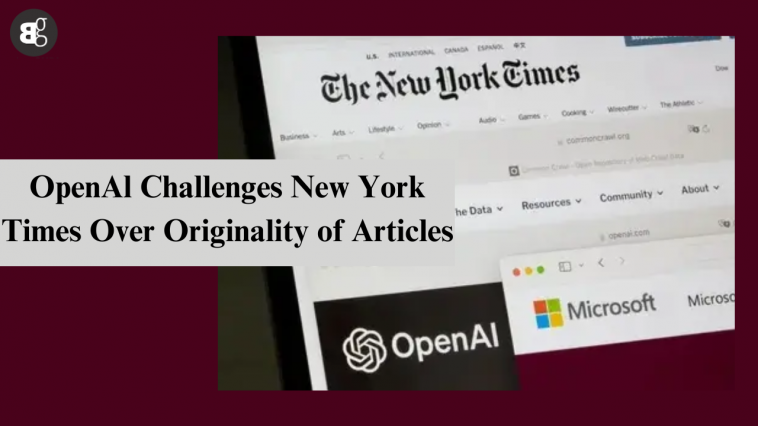The AI startup OpenAI was sued in December 2023 by The New York Times, which said it had violated its copyrights and the Times claimed that OpenAI had trained its AI model, ChatGPT, without authorization by exploiting its vast article library.
OpenAI has tasked the New York Times to demonstrate that its material is unique in response. To bolster their allegation, they have requested that the publication produce reporter’s notes and other pertinent materials. This OpenAI action has generated debate.
The New York Times they have retaliated on Wednesday, branding OpenAI’s demand for copious documentation as harassment. They contended that the Federal Rules of Civil Procedure, which regulate court proceedings in the US, forbade the unprecedented demand for such a broad range of papers.
According to The Times, OpenAI’s request is needless and unduly expansive. They think it is meant to burden and frighten the newspaper, going beyond what is reasonable in a copyright infringement lawsuit.
The Center for Investigative Reporting has launched a lawsuit against OpenAI, increasing the legal pressure on the AI startup. This group is charging OpenAI of infringing on their copyrights, as are other media sources.
They contend that OpenAI has violated the rights of journalists and publishers by using their content to train its AI systems without the required license.
The growing volume of lawsuits against OpenAI demonstrates the conflict between new AI technology and established media companies. Media firms seek to safeguard their intellectual property rights and are concerned about how their content is used. In the meantime, AI firms contend that to advance their systems, they require access to vast volumes of data.





